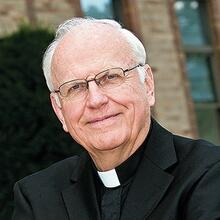Wisdom of Solomon was written in Greek sometime in the late first century BCE or early first century CE to encourage the Jewish community, probably in Alexandria, to be confident of their God's governance in a particularly difficult time. Today's passage comes in the third part of this book. Part I described how wisdom, the hidden energy of the world, protects the child of God.
Part II showed what wisdom is and how to attain it. Part III shifts the perspective by speaking of God rather than of wisdom, and naming God as the one whose wisdom guides and protects Israel, the righteous child preeminently.
Part III also contains two excursus relevant to the theme of God’s governance, explaining how power and mercy are inextricably combined in God's rule, even with regard to nations and whose practices are abhorrent to Israel.
Today's passage gives the reason for God's power-with-lenience approach. It comes from God’s loving commitment to creation, and willingness to give human beings the opportunity to repent and be renewed (11:23-12:2). Not all religious thinkers of the time were so positive regarding God’s abiding commitment and the possibility of human renewal. Some Qumran sectarians, for example, viewed outsiders with harshness and suspicion and emphasized divine vengeance.
Romans 8:26-27 looks at divine governance in a more intimate and individual way. The powerful Spirit strengthens the Christian and makes it possible for their prayer to be heard. The Gospel passage from Matthew 13 combines something of both perspectives in comparing soil receiving a seed to an individual hearing the word. Divine rule is implied in that God waits patiently for the word to germinate in each person's heart.
Some Christians today are impatient with God's patience. Today's reading may help us see that God's power is exercised with compassion and restraint in view of human's capacity to change.
Richard J. Clifford, S.J.,Boston College School of Theology and Ministry







